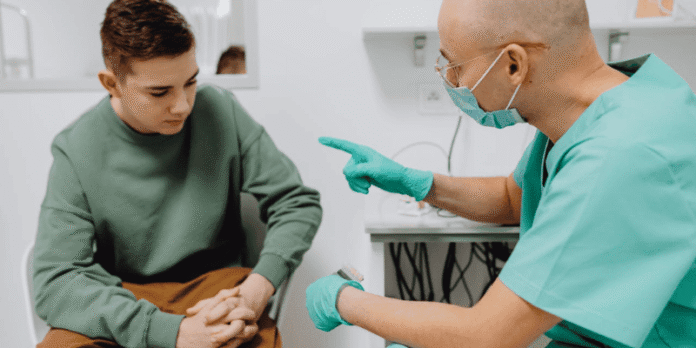Finding the right level of care for teens can feel overwhelming, especially with so many options available. Families searching for effective support often want to know which adolescent outpatient programs in Scottsdale or nearby areas provide the most complete care. The most comprehensive options combine evidence-based therapy, family involvement, and flexible scheduling that allows teens to continue school and daily routines while receiving structured treatment. Such programs address mental health challenges, substance use, and trauma with a focus on long-term stability.
Several Scottsdale centers stand out by providing intensive outpatient programs (IOPs) with 15 to 20 hours of weekly programming, individualized treatment plans, and access to psychiatric support. Others provide partial hospitalization programs (PHPs) for more intensive needs, ensuring that adolescents receive consistent care without requiring full-time residential treatment.
By focusing on trauma-informed therapy, substance use recovery, and family-centered approaches, these programs give adolescents the tools to manage challenges while building healthier coping strategies. Scottsdale’s range of outpatient options makes it possible to match the level of care to each teen’s unique situation.
Read more :
Key Takeaways
- Scottsdale provides a range of structured outpatient care for adolescents
- Leading programs use evidence-based therapy and family support
- Options vary in intensity, from IOPs to PHPs, based on individual needs
Comprehensive Outpatient Care Options for Adolescents in Scottsdale
Adolescents in Scottsdale can access structured outpatient care that balances treatment with school and family life. Options range from intensive outpatient programs to partial hospitalization, with services tailored to individual needs through therapy, psychiatry, and family involvement.
Intensive Outpatient Programs (IOP) and Their Benefits
An Intensive Outpatient Program (IOP) usually provides between 9 and 15 hours of structured therapy each week. Teens attend multiple sessions focused on individual counseling, group therapy, and family-based support. This format allows them to continue attending school and living at home while receiving consistent care.
IOPs in Scottsdale specialize in treating mental health conditions, trauma, and substance use disorders. Treatment often combines evidence-based practices like cognitive behavioral therapy (CBT) with psychiatric support when needed. One of the main benefits of IOP is flexibility. Families can choose evening or after-school sessions, making it easier to maintain daily routines. This level of care suits adolescents who need more than weekly therapy but do not require full-day treatment.
Partial Hospitalization Programs (PHP) for Teens
A Partial Hospitalization Program (PHP) provides a higher level of care than IOP. Teens typically attend treatment for 6–8 hours a day, five days a week, while still returning home in the evenings. This structure provides an alternative to inpatient care for those who need intensive support but remain stable in a home environment.
PHPs are especially effective for adolescents who experience frequent crises or need structured days to stabilize symptoms. The consistent schedule helps reduce risky behaviors and provides a bridge between inpatient hospitalization and outpatient therapy.
Personalized Treatment Plans and Levels of Care
Outpatient care in Scottsdale emphasizes personalized treatment planning. Each adolescent receives an assessment that considers their medical history, mental health needs, academic challenges, and family dynamics. From this, providers recommend the most appropriate level of care—standard outpatient, IOP, or PHP.
Programs also integrate psychiatric evaluation, medication management, and evidence-based therapies to match the individual’s goals. Family involvement is another key component, as parents and guardians participate in therapy sessions and learn strategies to support recovery at home. This individualized approach ensures that treatment intensity can adjust over time. For example, a teen may begin in PHP, step down to IOP, and eventually transition to weekly outpatient sessions as progress continues.
Key Therapeutic Approaches and Support Services in Leading Programs
Comprehensive outpatient programs in Scottsdale often combine structured clinical therapies with supportive services that address emotional, social, and family needs. These approaches focus on building coping skills, strengthening relationships, and creating a safe environment where adolescents can practice healthier behaviors.
Evidence-Based Therapies: CBT, DBT, and More
Many leading programs rely on evidence-based therapies that have been shown to reduce symptoms of anxiety, depression, and behavioral issues. Cognitive Behavioral Therapy (CBT) helps adolescents identify negative thought patterns and replace them with constructive alternatives. This structured approach is effective for mood regulation, problem-solving, and managing stress.
Dialectical Behavior Therapy (DBT) is also widely used, particularly for adolescents who struggle with emotional regulation or self-harming behaviors. DBT combines cognitive strategies with mindfulness practices, teaching skills in distress tolerance, interpersonal effectiveness, and emotional balance. Some programs also integrate mindfulness-based interventions and motivational interviewing to increase self-awareness and encourage positive decision-making. These therapies are often delivered in individual sessions, but many programs blend them with group settings to reinforce skill-building.
Family Therapy and Parental Involvement
Family therapy plays a central role in outpatient care because adolescent recovery often depends on a supportive home environment. Sessions typically involve both the adolescent and parents, focusing on communication skills, conflict resolution, and rebuilding trust. Programs in Scottsdale emphasize parental involvement through structured family counseling, educational workshops, and progress reviews. This ensures that parents understand treatment goals and can reinforce strategies at home.
Some centers also provide multi-family therapy groups, where several families meet together under professional guidance. This setting allows parents to learn from others facing similar challenges and develop practical tools for supporting their children. Active family participation often leads to stronger treatment outcomes and reduced relapse risk.
Conclusion
Adolescent outpatient programs in Scottsdale provide structured care that balances therapy with the flexibility of daily life. Options range from standard outpatient services to more intensive models like IOPs and partial hospitalization programs. The availability of multiple levels of care ensures that adolescents can access support that matches their situation without disrupting school, family, or social responsibilities.

